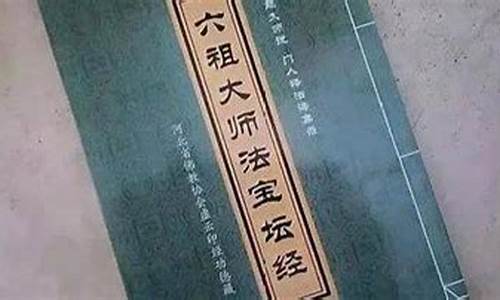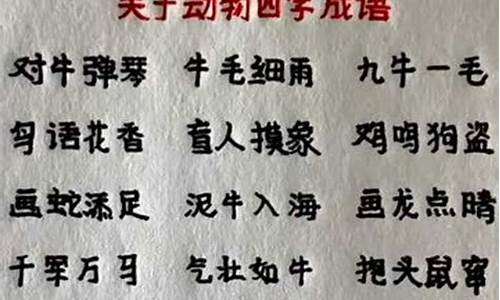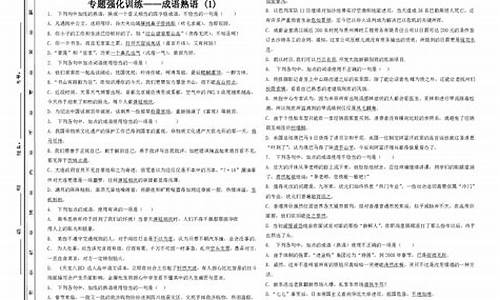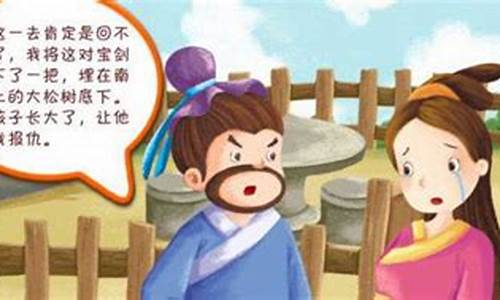boisterous_Boisterous.
1.noisy的副词是什么?
2.谁能帮我比较罗密欧与朱丽叶中Benvolio Mercutio and Tybalt 性格呀……要英文哦
3.求英诗(Sir Patrick Spens)的翻译, 该如何鉴赏此诗?

If you come to Hong Kong there are certain foods that you cannot leave without trying. From dim sum to fusion, put at least some of the must-eats of Asia’s world city on your menu.
Dim sum means ‘touch your heart’ and with as many as 150 items on a restaurant menu, and 2,000 in the entire range, it is a challenge to not find something you love. As Cantonese people tend to avoid fried foods early in the day, steamed dishes dominate most dim sum menus. There are also snack-sized portions of pan-fried, deep-fried, and baked served in bamboo containers, which are designed to be eaten communally and washed down with tea. Hence, going for dim sum is known as yum cha, which literally means ‘drinking tea.’ Usually a brunch or lunch affair, it is a common form of family, co-worker and other group get-togethers.
Today, dim sum restaurants come in all shapes and sizes, from straight shooting to high falutin’. Start with one of the large mid-priced eateries where in the midst of boisterous conversations you will see multiple generations gather around the table for a no-nonsense family feed and office workers enjoying a short but effective break from the daily grind. When you enter, let the waiter know how many people are in your group, be seated, decide on what type of tea you want, order your dim sum, and enjoy a quintessential Hong Kong experience Hong Kong’s seafood is very fresh. So fresh, you can see it swimming minutes before it’s on your table. True to form, Asia’s world city also offers up seafood in a variety of dining experiences that range from cosmopolitan fusions that would impress the most jaded epicurean all the way down to the best-served-with-beer ‘sampan-style’ concoctions.
For a truly enjoyable seafood feast, desert the downtown for a few hours and head for a seafood district. Here you will find rows of restaurants where you can pick your prey from an aquarium and eat it alfresco while enjoying picturesque sea views on a balmy Hong Kong evening.
noisy的副词是什么?
George Gordon Byron 乔治·戈登·拜伦
More than any other poet Lord Byron has been identified with his own heroes —— with Childe Harold, the romantic traveller; with Manfred, the outcast from society; with Don Juan, the cynical, heartless lover. Although Byron did use his own life as the material for much of his poetry, it is by no means purely autobiographical. It is, however, in his long poems that Byron's genius most truly resides rather than in the lyrics which usually represent him in selections.
Byron was born into an aristocratic family of doubtful reputation. His father died of drink and debauchery when Byron was 3, and when he was 10 his great-uncle —— the 'wicked’ Lord Byron —— also died. Byron inherited the title, a vast house called Newstead Abbey, and estates already mortgaged or in decay.
Byron's father, by his first marriage, had a daughter, Augusta, Byron's half-sister. His father's second wife, Byron's own mother, was a proud, irascible, Calvinistic Scotswoman named Catherine Gordon of Gight. He was born with a malformed foot —— a disability which tortured him with self-consciousness in his youth. He went to Harrow and to Trinity College, Cambridge, where, amongst other eccentricities, he kept a bear. While an undergraduate he published his first book of poems. Hours of Idleness. The adverse criticism it deservedly got stung Byron not to despair but to revenge, and he replied with a satire in the manner of Pope called English Bards and Scotch Reviewers. After Cambridge, Byron went on the grand tour of Europe, traditional for men of his education; but owing to the Napoleonic Wars, his route took him, not overland, as was usual by way of Paris to Rome, but by sea to Lisbon, Spain, and the Mediterranean. For nearly 2 years he wandered about Greece and the Aegean Islands. This was the shaping time of his imagination.
When he was 23 his mother died, and he came home, an extremely handsome young man, to install himself boisterously at Newstead Abbey. He entered London society and spoke in the House of Lords. It was now that he showed his friend, R.C. Dallas, a new satire, Hints from Horace. Dallas, secretly not much impressed, asked if he had anything else; Byron quite casually said that he had 'a lot of Spenserian stanzas’。 Dallas read them with astonishment and delight, showed them to Murray the publisher, and on 20 February 1812, the first two cantos of Childe Harold were published. They took the town by storm. Byron became famous overnight. He could not now write fast enough, and in the next 4 years appeared a series of romantic poems, the best among them being he Corsair and he Bride of Abydos. It is said that 14,000 copies of The Corsair were sold in a day.
Byron had always been susceptible to women and attractive to them; now that he was successful they threw themselves at his head. For 3 years he lived ;in the limelight, and then, quite unaccountably, married Ann Milbanke, a frigid, correct, intellectual woman, entirely unsuited to him, but with a lot of money. She bore him a daughter and left him within a year, hinting that he had an immoral relationship with his halfsister Augusta. Society turned against him, as lavish now with calumny and spite as it had been with praise and flattery. Byron would not stay to be insulted; he left England for good.
The next few years were spent mostly in Venice, where Byron established himself with a menagerie of strange animals and conducted various love-affairs. It was in Italy that his masterpiece Don Juan was written. This brilliant, caustic, rambling satire is written in a colloquial style which is the result of a mastery of technique. Byron, always a fluent writer, was not over-critical of his own work; but Beppo, A Vision of Judgement, and Don Juan more than justify his reputation as a great poet. His influence on European literature —— both by what he wrote and by the general idea of the romantic figure of Childe Harold —— the typical Byronic hero —— was very great.
Like many poets, Byron was at heart a man of action. He loved the idea of freedom, and threw himself with intense energy into the Greek struggle for independence from Turkey. In 1823 he left Italy for Greece, but the next year, worn out with the ardours of the campaign, he caught rheumatic fever and died at Missolonghi, mourned as a national hero by the Greeks.
From Oxford Junior Encyclopedia
人们认为拜伦勋爵比任何其他诗人更象自己创造的英雄人物——即富于浪漫色彩的旅游者恰尔德·哈罗德;被社会摈弃的曼弗雷德;愤世嫉俗,铁石心肠的情人唐·璜。虽然拜伦确曾利用自己的生活经历作为素材写了很多诗篇,但这些诗篇决不纯粹是自传性质的。然而最能真正体现拜伦的天才的还是他的那些长诗,而不是通常在选集里作为他的代表作的那些抒情诗。
拜伦出生于一个名声有些问题的贵族家庭。他三岁时,父亲死于饮酒过度和生活腐化。他十岁时,他的叔祖——即“邪恶的”拜伦勋爵——也去世了。拜伦继承了爵位,继承了称为“纽斯台德寺院”的大宅邸和已经抵押出去的或已趋于衰败的产业。
拜伦的父亲第一次结婚以后生了一个女儿,名叫奥古斯塔,即拜伦的同父异母姐姐。他父亲的第二个妻子,即拜伦的亲生母亲,是一个高傲的、性情暴躁的、卡尔文教派的苏格兰盖特这个地方的妇女,名叫凯瑟琳·戈登。拜伦生下时,一只脚就带有残疾——这使他在年轻时候极为敏感,由此给他带来莫大的痛苦。他到哈罗学校和剑桥大学的三一学院学习,在学校里,他养了一只熊,而且还有其他一些古怪行为。他在大学读书时,就出版了第一本诗集《闲散的时光》。这本诗集受到的应有的非难刺痛了拜伦的心,他没有绝望,而是想报复,他以蒲柏的风格写了一篇名为《英格兰诗人和苏格兰评论家》的讽刺诗作为回答。离开剑桥大学以后,拜伦启程往欧洲作长途旅行,这是受过象他这种教育的人的传统习俗。但是由于拿破仑战争,他走的路线不是通常那样由陆路从巴黎到罗马,而是通过海路到里斯本、西班牙和地中海一带。将近两年当中,他漫游了希腊和爱琴海群岛。这是他的想象力形成的时期。
当他二十三岁时,他的母亲去世了。他成为一个非常漂亮的青年,回到了家里,兴高采烈地在纽斯台德寺院安顿了下来。他进入了伦敦社交界,在上议院发表演讲。就在这个时候,他把一首新的讽刺诗《霍勒斯的启示》给他的朋友R.C.达拉斯看。达拉斯对这首诗印象并不好,但没有表露出来,而是问他是否还写了别的什么东西;拜伦漫不经心地说,写了“许多斯宾塞诗节”。达拉斯以惊喜的心情读完了这些诗篇,并把这些诗篇推荐给了出版商默里。1812年2月20日《恰尔德·哈罗德》第一、二章出版了,全城为之轰动。拜伦在一夜之间成了名。从此以后,他写得再快也应接不暇。在这以后的四年期间,他写了一系列浪漫诗篇,其中最好的有《海盗》和《阿比多斯的新娘》。据说,《海盗》一天就销售了一万四千册。
拜伦对于女性总是容易动感情,而且对妇女具有吸引力。现在他既然已经飞黄腾达,她们更愿意委身于他。三年里他出够了风头,然后,莫名其妙地和安·米尔班克结了婚,她是一个冷漠的、严肃的、有理智的妇女,对于他根本不合适,只是有很多钱。她给他生了一个女儿,不到一年就离开了他,暗示他和他的同父异母姐姐奥古斯塔关系暖昧。整个社会转而对他采取敌对态度,对他进行恶意的诽谤和诬蔑,其过分的程度就如当初对他进行赞美和吹捧那样。拜伦不愿继续忍受这种侮辱,他离开了英国,一去不复返。
以后几年他主要是在威尼斯度过的,在那儿他驯养了一群珍奇动物,也搞了不少风流韵事。他有杰作《唐·璜》是在意大利写的。这篇光辉的,刻薄的,但很松散的讽刺叙事诗是以一种通俗的口语体写的,这种体裁是他掌握技巧的成果。拜伦总是写得很流畅,对于自己的作品不作过多的推敲和修饰;但是《别波》、《审判的幻景》和《唐·璜》这三部作品证明他的伟大诗人的名望是当之无愧的。他对欧洲文学的影响——通过他所写的作品以及恰尔德·哈罗德这个浪漫派人物,即典型的拜伦式英雄的一般概念所散布的影响——是极为巨大的。
象许多诗人一样,拜伦在本质上是一个活动家。他热爱自由这个理想,他以旺盛的精力投身于希腊为摆脱土耳其统治而进行的独立斗争中。1823年,他离开意大利前往希腊,但是第二年,他由于热心独立运动而劳累过度,染上了风湿病,终于在梅索朗吉昂去世,成为希腊人所悼念的一位民族英雄。
译自《牛津少年百科全书》
谁能帮我比较罗密欧与朱丽叶中Benvolio Mercutio and Tybalt 性格呀……要英文哦
noisy的副词是noisily。
noisily
英?[?n?z?li]?美?[?n?z?li]?
adv. 吵闹地,喧闹地
短语
noisily ad喧闹地
noisily turbulent?吵闹的
noisily plunder?抢夺
近义词
boisterously
英?[?b?st?r?sli]?美?[?b?st?r?sli]?
adv. 吵闹地;喧闹地
短语
tease boisterously?兴高采烈地逗弄
look fierce and talk boisterously?正言厉色
laugh boisterously?兴高采烈地笑
求英诗(Sir Patrick Spens)的翻译, 该如何鉴赏此诗?
第一幕第二场:Capulet家的一个前厅:
Juliet正在玩洋娃娃和戏弄她的媬姆。这时她的父母和一个富有的贵族青年Paris走了进来,Paris向Juliet求婚并得到她父母的允许。
第一幕第三场:Capulet家外面:
宾客们来到Capulet家准备参加舞会,Romeo再次向Rosaline求爱又遭到拒绝。当所有宾客进屋后,Romeo、Mercutio和Benvolio跳了一集活泼的三人舞,然后三人便戴上面具潜进舞会。
第一幕第四场:舞会里:宾客们跳了一段舞,Juliet来到会场,并和Paris跳了一段双人舞。Romeo为Juliet的美丽所吸引,当Juliet弹奏诗琴(lute)让她的朋友跳舞时,Romeo加入跳舞;当Juliet独舞时,他和她一起跳。Tybalt和其他宾客讶异于他们的举动,Mercutio和Benvolio便以跳舞引开别人的注意力。正当大家准备离开宴会厅去吃晚饭时,Juliet说她很累宁愿留下来,Romeo趁大家离去后脱下面具和Juliet跳了一段热情的双人舞。刚巧Tybalt和Capulet等人回来看到Romeo,Tybalt准备和Romeo来一场战斗,但Capulet阻止了他并欢迎Romeo成为他的宾客。宴会结束后Mercutio和Benvolio催促Romeo离开。
第一幕第五场:Capulet家外:
所有宾客离开舞会,Capulet阻止Tybalt追击Romeo。
第一幕第六场:Juliet房外的露台
想著Romeo的Juliet难以入睡,走了出露台。Romeo突然在花园里出现,Juliet跑下楼梯和Romeo相会。两人互相表白爱意,并跳了一段激情的双人舞。
第二幕第一场:市集:
Romeo满脑子都是Juliet的影子。一队庆祝结婚的队伍经过,Romeo幻想著他和Juliet能结婚的日子。这时Juliet的媬姆来到市集寻找Romeo,她交给他一封Juliet的信,里面写著Juliet愿意嫁给Romeo为妻。Romeo在狂喜中跑走了。
第二幕第二场:教堂:
期望这段婚姻能平息Capulet和Montague家的恩怨的Laurence修士,为Romeo和Juliet秘密证婚。
第二幕第三场:市集: Romeo怀著愉快的心情回到市集。Tybalt也带著他的随从到来,并挑衅Romeo。但Romeo想到自己已是Tybalt的姻亲,不愿和Tybalt有争执,沉不住气的Mercutio则和Tybalt打了起来。Tybalt趁Mercutio和朋友嬉笑时从背后刺了他一刀,Mercutio本来还在和众人开玩笑,但渐渐因失血过多而终于倒下,在诅咒了Montague和Capulet两家人后Mercutio死去。在极度的悲痛中Romeo拿起剑杀死了Tybalt。刚巧来到的Capulet夫人见到Tybalt的尸体非常伤心激动,Romeo上前祈求她的原谅,但她拾起地上的剑企图杀死Romeo,Romeo离开。
第三幕第一场:Juliet的睡房:随著清晨的到来Romeo醒过来并准备趁Juliet未醒前离开维罗那城。Juliet惊醒过来,并和Romeo伤心地告别。这时Juliet的父母和Paris到来,他们告诉Juliet Paris就是她的未来丈夫。Juliet反抗她父母的命令,这令Capulet大发雷霆,一众人离开Juliet的房间。Juliet披起披肩跑往Laurence修士那儿。
第三幕第二场:教堂:
Juliet向修士求助,他给她一瓶喝后会令她沉睡得像死去一样的药。修士计划Juliet的父母会以为她死去并将她葬在家族墓室中,而他就会通知Romeo去救她,那他们就能一起逃离维罗那城。Juliet接过药瓶后回家。
第三幕第三场:Juliet的睡房:那天晚上Juliet答应嫁给Paris。当所有人离开后,Juliet喝了那瓶药并挣扎回床上。翌日早晨她的朋友带著花来庆祝Juliet的结婚典礼时发现Juliet睡得像死去一般,Juliet的媬姆拿著她的结婚礼服进来,并发现Juliet已然死去。Capulet夫妇来到床沿哀悼。
第三幕第四场:Capulet家的地下墓室
未能接到修士的信的Romeo扮成一个僧侣来到墓室,他杀死了站在Juliet的停尸架旁的Paris,然后喝下他准备了的毒药自杀。醒过来的Juliet发现Romeo为她而殉情死去,她拾起Romeo的匕首自刺而死。
《帕特里克?斯彭斯爵士》
邓弗林镇上坐着国王,
喝着血一样红的酒:
“啊,我哪里去找好水手,
来驾驶我这艘好船?”
坐在国王右脚边
一个老骑士起身说:
“帕特里克 斯彭斯爵士
是海上最顶尖的船长。”
国王写了一封公函,
并亲自署了名字;
然后寄给了帕特里克 斯彭斯爵士,
他正散步在沙滩上。
帕特里克爵士读罢第一行,
便哈哈大笑;
帕特里克爵士读罢第二行,
泪水便模糊了双眼。
“啊,是谁作了这孽,
对我做了这恶孽;
偏偏在一年中这时节,
要我扬帆出海。”
“快,快,我的伙计们,
我们的好船明早就开航。”
“别,哦别,我亲爱的船长,
恐怕会遇上致命的风暴。”
“昨、昨晚我看见新月,
怀中还抱着老月;
所以我怕,我拍,我亲爱的船长,
我们会遭殃。”
啊,我们的苏格兰老爷们无可厚非,
他们不想弄湿他们的软木跟鞋,
但戏都还远远没演完,
他们的帽子已漂浮在海面上。
啊,他们的女人也许还要坐着,
手里摇着扇儿很久很久,
等待帕特里克 斯彭斯爵士
扬帆驶向陆地。
啊,他们的女人也许还要站着,
发上别着金梳子很久很久,
等待她们自己的老爷们,
因为她们将再见不到他们。
在前往阿伯多尔的半途,半途中,
在五十寻深处,
躺着好帕特里克 斯彭斯爵士,
脚边是他的苏格兰老爷们。
声明:本站所有文章资源内容,如无特殊说明或标注,均为采集网络资源。如若本站内容侵犯了原著者的合法权益,可联系本站删除。











